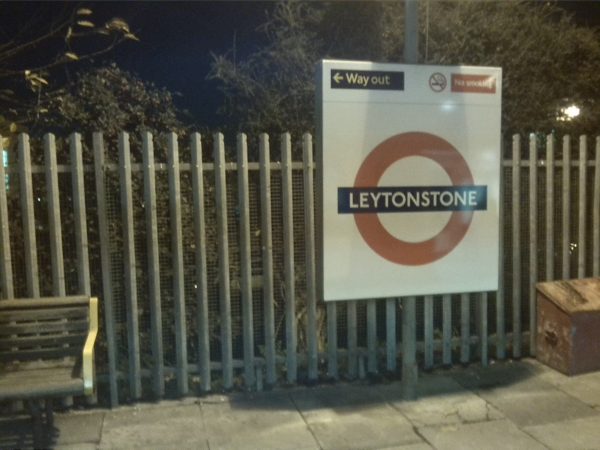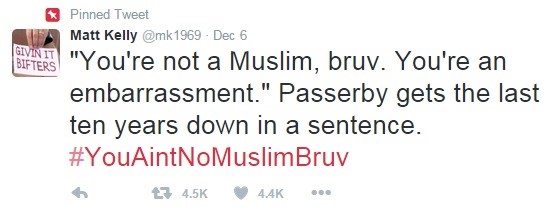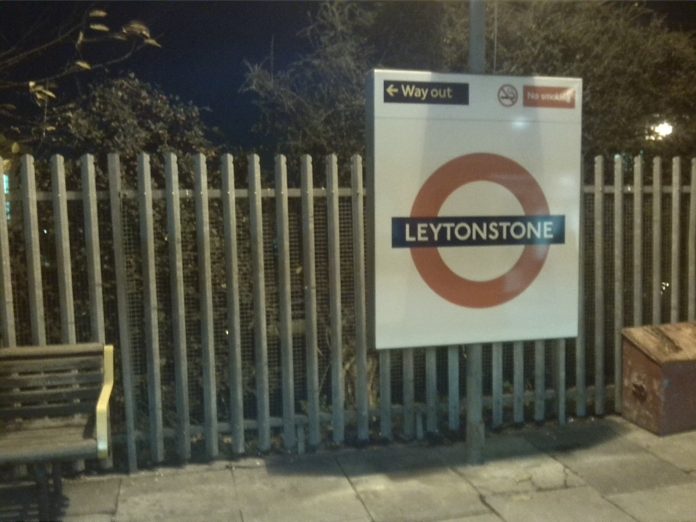Grace Eracleous reviews the role of social media in the aftermath of the Leytonstone knife attack.

#YouAintNoMuslimBruv is the hashtag which stampeded social media after a smartphone video of the Leytonstone knife attack was uploaded onto social media platforms on Saturday night.
When a knife-wielding assailant, subsequently charged with attempted murder, ran amok in the ticket hall of Leytonstone Tube station, screaming ‘This is for Syria’, an onlooker shouted back, ‘You ain’t no Muslim, bruv’, and the whole scene was filmed by another traveller using his smartphone.
The on-the-spot comment, and the way it was taken and up and widely circulated, was praised afterwards as a sign of the quick-witted spirit of London, and as an indication of social media’s role in preventing panic, rejecting Islamophobia, and bringing the capital city together against a widely perceived threat.
At the same time, however, there has been criticism of onlookers filming the scene for subsequent uploading onto social media, rather than intervening to stop it.
David Cameron praised the phrase ‘you ain’t no Muslim bruv’. The prime minister declared that “it said it all much better than I ever could, and thank you because that will be applauded around the country.” He was echoed by London mayor Boris Johnson, who also used the hashtag.
A Tweet posted by Matt Kelly, chief content officer at Archant and chair of the Global Editors’ Network, received 4.5 thousand retweets and 4.4 thousand favourites.

But bystanders who were quick to film the attack for circulation in social media, have also met with criticism for being too slow to stop it happening.
David Pethers, 33, is the have-a-go hero who attempted to disarm the knifeman. He was wounded in the neck, but he also found the passive attitude of other Tube travellers almost hurtful: “All I would say to people is, don’t put yourselves in danger but at the same time, if someone is trying to do something, don’t stand there filming – help them.”
The Daily Mail amplified these thoughts in a front page story published on 7 December: ‘How I fought Tube knifeman: hero’s fury at ghouls who stood by filming as he risked his life after maniac tried to behead victim while shouting about Syria.’
Why did some members of the public feel the need to video the incident, rather than helping those in need? Do they think life is a spectator sport? Are we so preoccupied with social media that when faced with a life-threatening situation, people hit the record button rather than protecting themselves or others?
The jury is still out on whether our reliance on social media amounts to a symbol of solidarity and common sense, or a sign of ludicrous levels of self-obsession.
Alleged knifeman Muyhadin Mire, 29, will appear for a committal hearing at the Old Bailey on 11 December when the date will be set for a jury trial.

